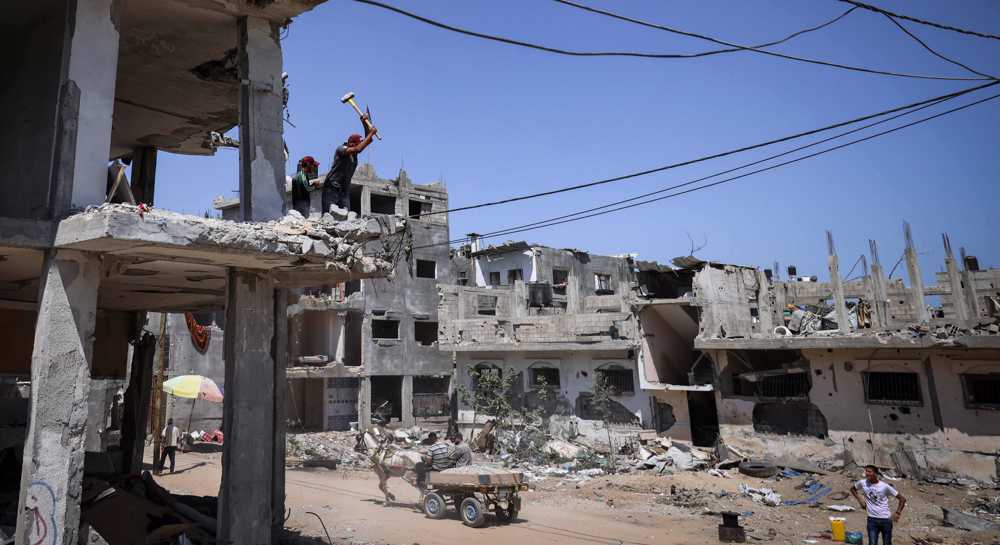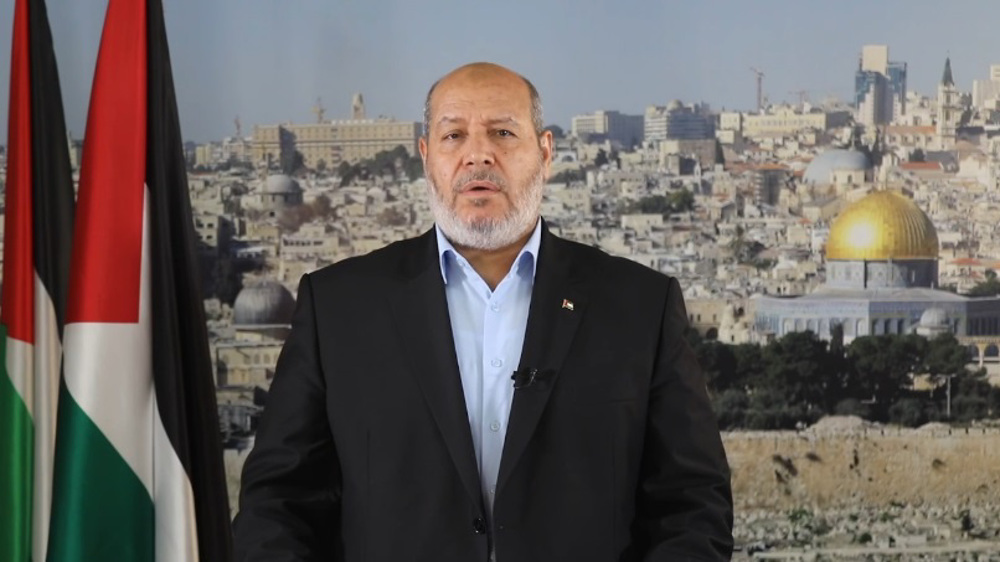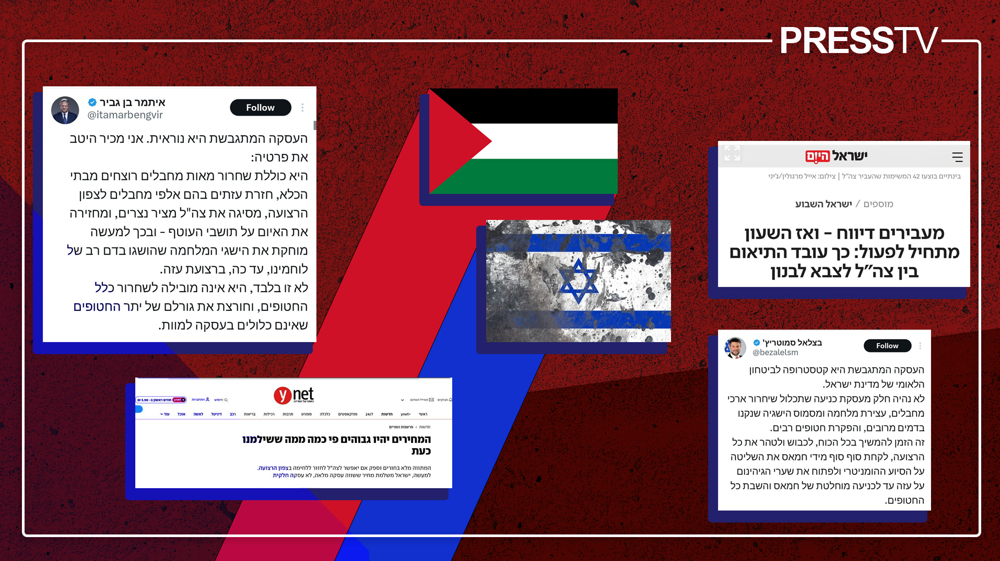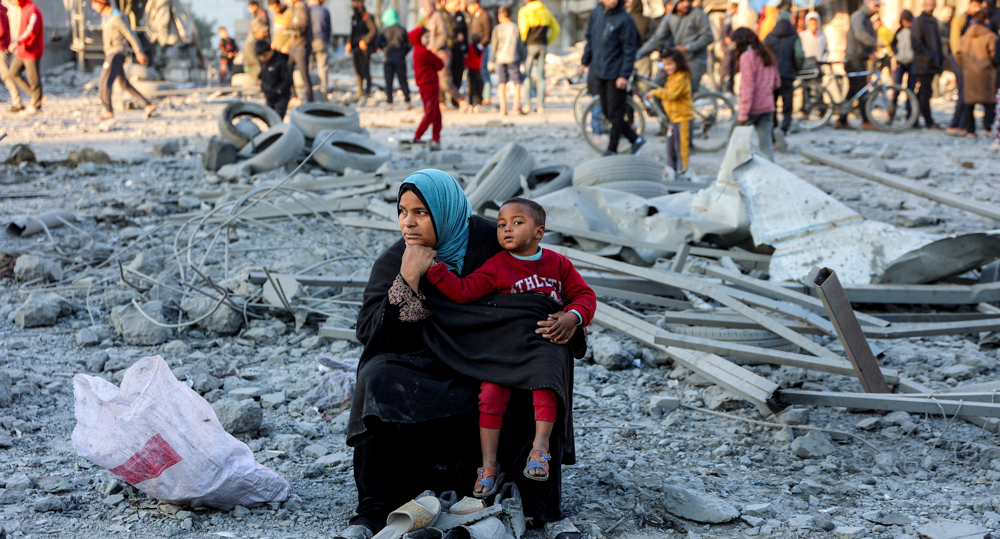Israel lacks will to end Gaza humanitarian crisis: Hamas leader
The leader of the Palestinian Islamic Resistance movement Hamas in the besieged Gaza Strip has expressed dissatisfaction with "bad" talks with United Nations diplomats supporting an Egyptian-brokered ceasefire with Israel, saying the Israeli regime has no will to end the humanitarian crisis in the enclave.
UN Middle East peace envoy Tor Wennesland arrived in Gaza on Monday for talks with Hamas leaders, one month after the fragile Egypt-mediated ceasefire ended 11 days of onslaught by the occupying entity on the coastal enclave.
"The meeting was bad, it was not at all positive," Yahya Sinwar, told reporters.
"They listened to us attentively. The roots of the problem must be resolved and unfortunately, there are no signs that there are intentions towards solving the humanitarian crisis in the Gaza Strip," Sinwar added.
He noted that Hamas would hold a meeting for the leaders of the national and Islamic factions "in the coming hours" to decide their next steps.
Meanwhile, a source in Hamas, who asked not to be identified, also said the UN envoy had delivered a "negative message" from the Tel Aviv regime to Hamas, without giving further details.
The UN declined to make any comment about the meeting.
Israel claimed Monday that it had allowed the "limited export" of farm produce to begin and trucks carrying clothes and fabrics to leave.
However, Sinwar rejected the claim and said the regime did nothing to change the situation in Gaza.
Israel continues to block international aid, as well as critical fuel deliveries needed for the electricity plant, and restrict movement, including fishermen in the Mediterranean, the Hamas official added.
"It is clear that the Occupation (Israel) continues to practice its policies against us and our people in the Gaza Strip," Sinwar said.
"We told the representatives of the United Nations that we will not accept this matter."
Tel Aviv launched the bombing campaign against the besieged Gaza Strip on May 10, following Palestinian retaliation against violent raids on worshipers at al-Aqsa Mosque and the regime’s plans to force a number of Palestinian families out of their homes at the Sheikh Jarrah neighborhood of East Jerusalem al-Quds.
Apparently caught off guard by the unprecedented barrage of rockets from Gaza, Israel announced a unilateral ceasefire on May 21, which Palestinian resistance movements accepted with Egyptian mediation.
According to Gaza’s Health Ministry, 260 Palestinians were killed in the Israeli offensive, including 66 children, 40 women and 16 elderly while 1,948 others were wounded.
In response, Palestinian resistance factions fired more than 4,000 rockets and missiles into the occupied territories, killing 12 people.
In the first attack since the end of the 11-day war, the Israeli regime on Wednesday launched a fresh round of airstrikes on the besieged Gaza Strip.
Israeli warplanes bombed with several missiles a site in Khan Yunis, south of the besieged Gaza Strip, and another site south of Gaza City which according to media reports, the bombing only caused material damage in the targeted areas and left no casualties.
Gaza soft drink factory shuts down over 'Israeli restrictions'
Owners of Gaza's Pepsi bottling company said it was forced to halt operations this week after the 11-day conflict tightened Israel's imposed restrictions.
Pepsi Gaza's Hamam al-Yazeji said Israel has maintained tightened measures on raw material imports, including carbon dioxide gas and syrup that the bottling company's factory needs to produce Pepsi, 7UP and Mirinda soda.
"Yesterday, we completely ran out of raw materials, and unfortunately we had to shut down the factory, sending home 250 workers," Yazeji said, adding that before the May fighting, Pepsi Gaza was generally allowed to import needed materials.
Israeli officials did not immediately provide comment on the tightened restrictions.
Analysts believe that shutdowns could also occur in other factories in Gaza if Israel keeps up its restrictions.
According to UN data, manufacturing makes up around 10 percent of Gaza's service sector-dominated economy.
Pepsi Gaza's factory has been operating continuously since 1961, when the Gaza-based Yazeji Soft Drinks Company acquired rights to produce 7UP and other types of soda in the enclave.
Worth about $15 million, the factory's products are distributed locally, the owners say. A separate branch operates in the occupied West Bank, worth about $30 million, which serves the territory as well as East Jerusalem al Quds.
Before the shutdown on Sunday, company officials planned to celebrate 60 years of operations.
With tears in his eyes as he walked through his empty factory on Monday, Yazeji said the shutdown was "catastrophic."
"This year should have been exceptional, celebrating 60 years since we began production. We are deprived of marking this anniversary," he added.
Hamas thanks Iran, Resistance Front following achievement of ceasefire in Gaza
'Capitulation': Israeli officials and media concede Gaza defeat as truce unfolds
'Gaza has won': Social media users react to ceasefire with mix of relief, joy
Iran seeks South Korea’s assistance for AI, fiber-optic projects
VIDEO | Iran's 'Eqtedar' (Power) maneuver
Israel hits HTS military target in Syria for 1st time since fall of Assad
VIDEO | Press TV's news headlines
Israel has slaughtered 13,000 students in Gaza, West Bank












 This makes it easy to access the Press TV website
This makes it easy to access the Press TV website